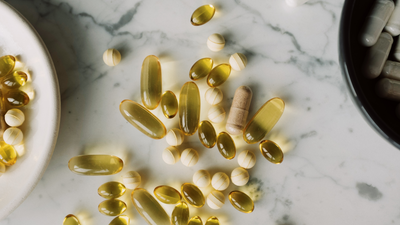Your Protein Powder Might be Toxic: What Breastfeeding Moms Should Know
Your Protein Powder Might be Toxic: What Breastfeeding Moms Should Know
By Katie Black
Protein powders are a staple supplement for many; in 2016 the worldwide supplement market was valued at $100 billion! But it certainly wasn’t always this way.
Proteins were first discovered by Jöns Jakob Berzelius in 1838. Named from the Greek word ‘protas’, it means ‘of primary importance’. During World War II the demand for non perishable foods led to powdered eggs, milk, and soy joining the market. In the 50s scientist and body builder Irvin Johnson made the first dissolvable protein powder and from there protein supplements took off—protein is actually the most studied macronutrient in the world.
It’s no longer just athletes and bodybuilders reaching for canisters of protein packed powder: it’s anyone wanting a balanced breakfast in their morning smoothie, those who eat vegan or vegetarian diets, and the list goes on. But you might be less than impressed once you learn about the potential toxins lurking in your scoop of powder, especially if you’re pregnant or breastfeeding since many toxins can cross the placenta or get into breast milk.
Related reading: How Does Pollution Affect My Breast Milk?
When it comes to dietary supplements, the FDA doesn't regulate what’s put on the label—it’s up to the manufacturer to label their products so it’s almost impossible to know if they’re telling the truth.
Recently the Clean Label Project put out a concerning report on the 134 top-selling protein powders. They tested for 130 different toxins and found high levels of heavy metals, BPA, pesticides, and other contaminants.
Heavy Metals
Heavy metals, such as lead, mercury, and cadmium can come from contamination in the soil, water, or manufacturing equipment. These metals can have harmful effects on the body and should be avoided as much as possible. For example, the FDA has found that there’s no safe amount of lead exposure and that it harms brain development. Babies and young children are especially vulnerable to the effects of lead and other heavy metals.
BPA
Bisphenol A (BPA) is a chemical commonly used in making certain plastics and resins—things like water bottles, food containers, and can linings. BPA is considered potentially harmful because it mimics the hormone estrogen and can mess around with the endocrine system. Studies have linked high levels of BPA exposure to various health problems such as reproductive disorders, hormonal imbalances, cardiovascular disease, obesity, and type 2 diabetes, plus behavioral and neurological problems in children. There are also studies showing babies can ingest BPA through breast milk.
Pesticides
Another toxin to be aware of is pesticides. Pesticides are commonly used in the farming of foods like soy and whey to kill pests. These chemicals can have negative effects on the body and have been linked to cancer and other health problems.
What can you do?
To lower your exposure to toxins in protein powders, it's important to choose high-quality brands that are transparent about where they get their ingredients from and testing process. You can use this handy Best and Worst Protein Powders Guide from the Clean Label Project to get started on choosing the right brand for you. Protein powders that are certified organic are less likely to have pesticides.
It's also worth noting that some types of protein powders, such as rice and pea protein, tend to have lower levels of heavy metals compared to others, like whey and hemp. So, if you're specifically concerned about heavy metals, you may want to consider switching to one of these options.
Another important thing is storage. Protein powders should be kept in a cool, dry place to prevent contamination with bacteria and molds. If you notice any strange smells or discoloration in your protein powder, it's best to throw it out and buy a new one.
It's also a good idea to vary the types of protein you eat, whether it's from powders or food sources. This can help lower your exposure to any one specific toxin and ensure that you're getting a well-rounded intake of nutrients.
If you’re concerned about the amount of protein or heavy metals in your breast milk, you can get it tested here. And to stay up to date on all things breastfeeding, subscribe to our newsletter and receive 10% off your first order.
Sources:
https://www.health.harvard.edu/staying-healthy/the-hidden-dangers-of-protein-powders
https://cleanlabelproject.org/protein-powder-white-paper/


